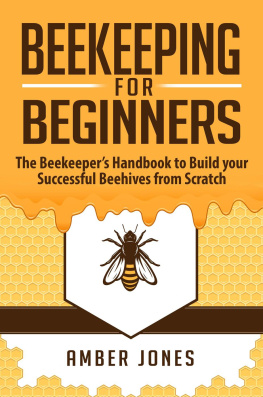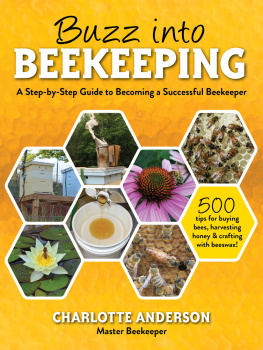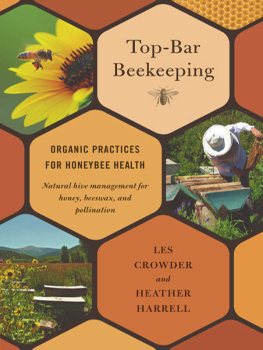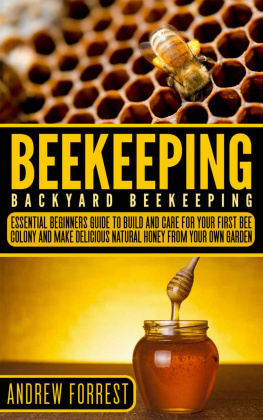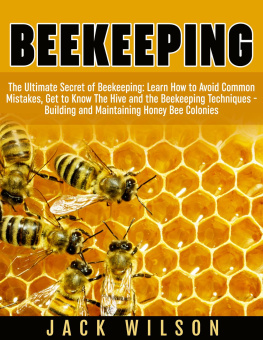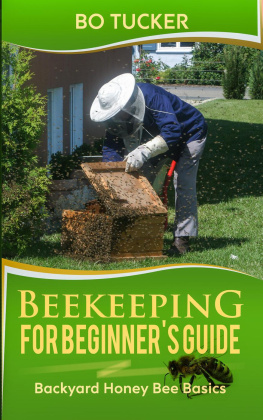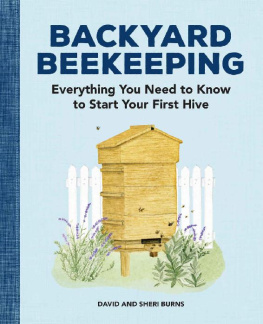THE BEGINNERS GUIDE TO
BEEKEEPING
SAMANTHA JOHNSON
AND DANIEL JOHNSON

DEDICATION
To Dad, our favorite beekeeper
First published in 2013 by Voyageur Press, an imprint of MBI Publishing Company, 400 First Avenue North, Suite 400, Minneapolis, MN 55401 USA
2013 Voyageur Press
Text and photography 2013 Daniel Johnson and Samantha Johnson
All photographs are from the authors collection unless noted otherwise.
All rights reserved. With the exception of quoting brief passages for the purposes of review, no part of this publication may be reproduced without prior written permission from the Publisher.
The information in this book is true and complete to the best of our knowledge. All recommendations are made without any guarantee on the part of the author or Publisher, who also disclaims any liability incurred in connection with the use of this data or specific details.
We recognize, further, that some words, model names, and designations mentioned herein are the property of the trademark holder. We use them for identification purposes only. This is not an official publication.
Voyageur Press titles are also available at discounts in bulk quantity for industrial or sales-promotional use. For details write to Special Sales Manager at MBI Publishing Company, 400 First Avenue North, Suite 400, Minneapolis, MN 55401 USA.
To find out more about our books, visit us online at www.voyageurpress.com.
Digital Edition: 978 -1-61058-798-3
Softcover Edition: 978-0-7603-4447-7
Library of Congress Cataloging-in-Publication Data
Johnson, Daniel, 1984
The beginners guide to beekeeping / by Daniel Johnson and Samantha Johnson.
pages cm
ISBN 978-0-7603-4447-7 (pbk.)
1. Bee culture--Amateurs manuals. I. Johnson, Samantha. II. Title.
SF523.J58 2013
638.1--dc23
2012050636
Editor: Jordan Wiklund
Design Manager: James Kegley
Series Design: Carol Holtz
Layout by: Kazuko Collins
Cover credit: Cultura/Floresco Productions/Getty Images


We would like to express our sincere gratitude to the following individuals for their help and assistance on this project:
Everyone at Voyageur Press for the opportunity to work on this book! Were so pleased to be doing another book with you.
Lorin, for sharing his beekeeping knowledge with us, and for proofreading the manuscript.
Paulette, for endless hours of photo editing, research, and sticking with us through this entire project!
J. Keeler, for keeping us on task with daily discussions.
Anna and Emily, for always being helpful.
Colin, Renee, and Terefech Snook for allowing us to come and photograph your bees.
Anna Kettlewell, Alyssa Fine, and Danielle Dale for their input on the Honey Queen Program.
The National Honey Board.
Gracie, for being our cheerleader (Rah, rah, rah!).
Peaches, for being cute.
Z. P., just because.
And all the worker bee girls at Fox Hill Farm and Pine Valley Farm for providing us with honey and beeswax and for pollinating our garden!
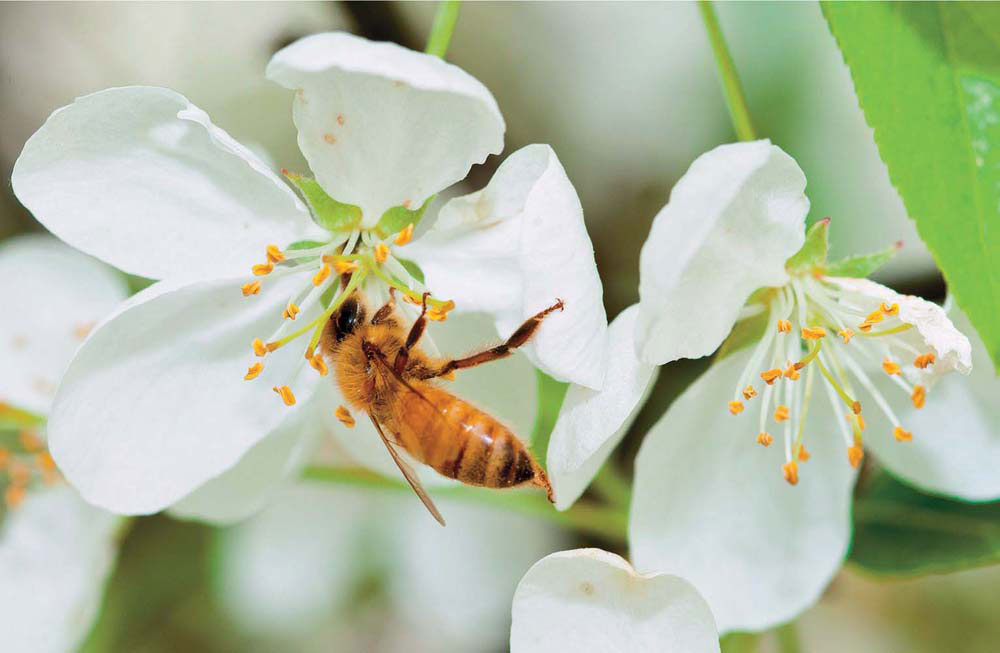
Honey bees are natures busiest pollinators. The benefits of honey bees are significant to food production, as up to 80 percent of crops are pollinated by honey bees. Some beekeepers travel the country with their bees and hives, offering pollination services to farmers and orchardists.

As bees in early summer swarm apace
Through flowery fields, when forth from dale and dell
They lead the full-grown offspring of the race,
Or with liquid honey store each cell
And make the teeming hive with nectarous sweets to swell.
These ease the comers of their loads, those
Drive the drones afar. The busy work each plies
And sweet with thyme and honey smells the hive.
VIRGILS AENEID, BOOK 1
Welcome to the world of beekeeping! Were excited that youve decided to explore this enjoyable, fascinating, and potentially tasty hobby. Our hope in writing this book is that bee-ginning beekeepers will find some helpful tips for getting started, that more advanced beekeepers will pick up some new ideas and further their knowledge, and that everyone will have some fun along the way. Well do our best to tell you everything you need to know in order to successfully raise a hive, harvest honey, and be a part of this rapidly growing community of beekeepers. And well do our best not to overwhelm you with bee humor and puns (although restraining ourselves will bee hard to do!).
So why keep bees? Beekeeping interests people for many different reasons, but here are a few of our favorites:
1. Bees make honey! This one is pretty obvious. There is nothing like the satisfaction of enjoying the sweet produce of your hives.
2. Bees make beeswax. Bees make more than just honey, you know! Additional products from your hive include beeswax and pollen, whichalong with your honeycan be used to make a wide variety of products from candles to soaps. Well discuss all of this in greater detail later on.

Beekeeping is a fascinating hobby and the number of beekeepers in the United States is increasing. It is becoming more and more popular in urban locations as well as remaining very important in our rural areas.
FASCINATING FACTS
The top honey-producing state is North Dakota.
To produce a single pound of honey, bees must visit as many as two million flowers and travel an accumulated distance of 50,000 miles.
A colony of bees can contain as many as 60,000 bees.
In her lifetime, an average female honey bee can fly a distance equal to going 1 1/2 times around the earth.
According to a USDA estimate, cited by the National Honey Board, bees are responsible for 80 percent of insect crop pollination in the United States.
Bees fly approximately 15 miles per hour.

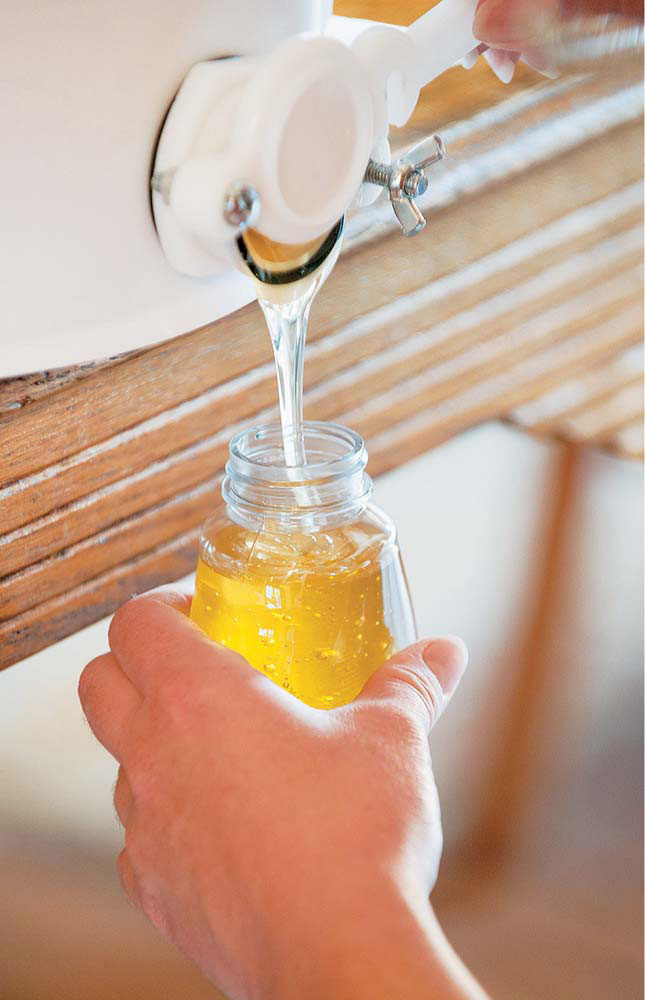
For many people, the best part of raising bees is the harvest of honey.
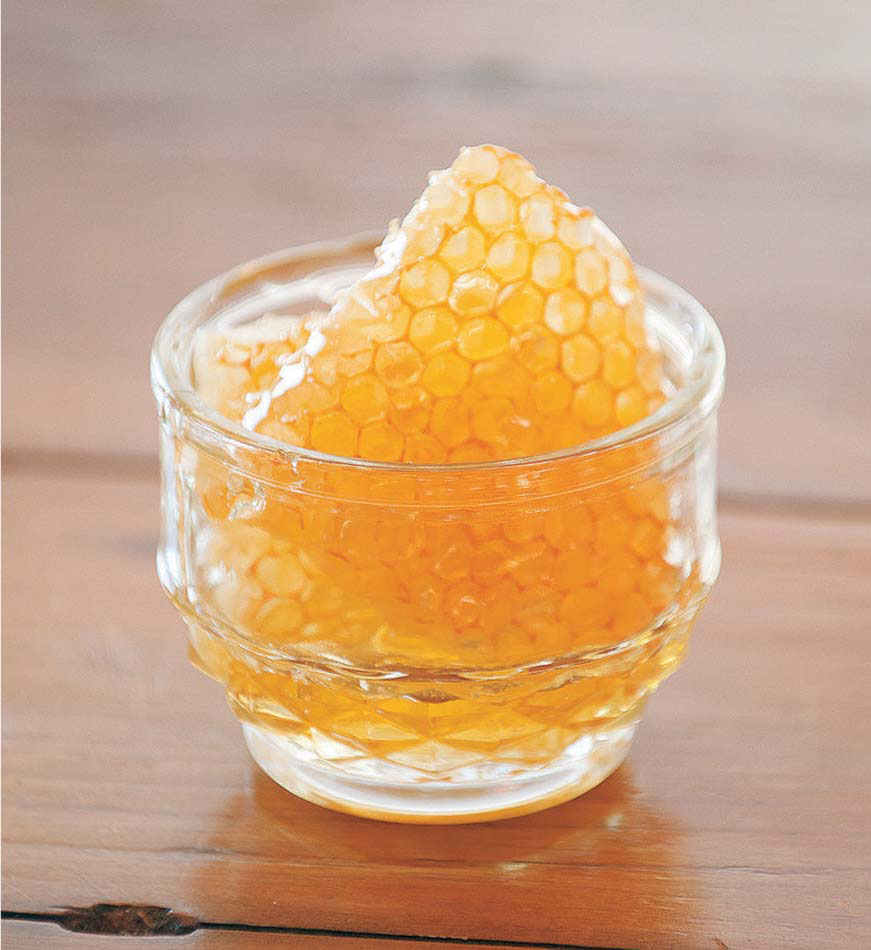
In addition to pollination and honey, beeswax is another wonderful benefit of raising beesits an immensely useful product in a number of ways!
3. Bees are fascinating. Really, until youve spent some time observing the habits of these little creatures, you wont appreciate how truly amazing they are, from their organization to their socialization. Youll witness the life cycle of the bees, from egg to adult, as well as their fantastic work ethic.


